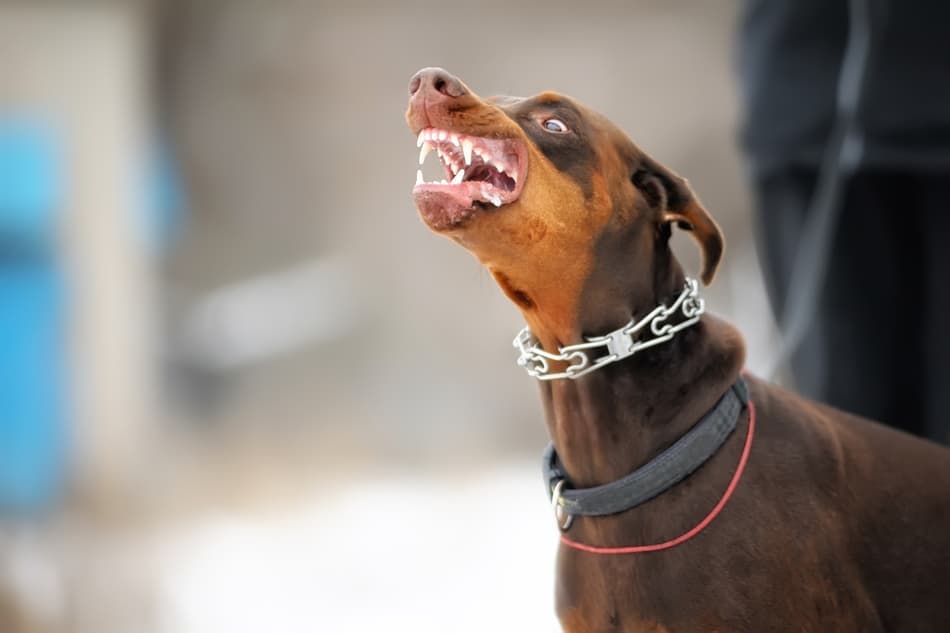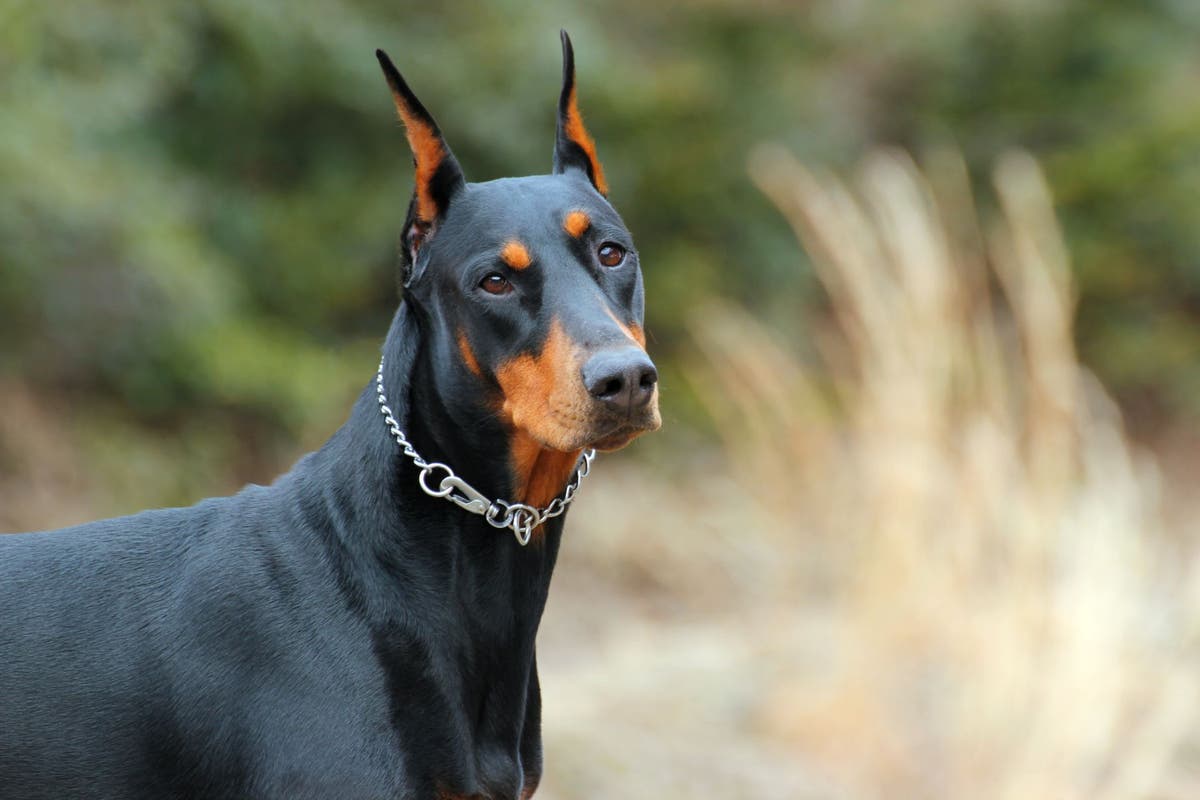When it comes to the question of why are Dobermans so aggressive, it is important to debunk the popular misconception that all Dobermans are inherently aggressive. In fact, aggression in Dobermans can often be attributed to factors such as genetics, poor socialization, inadequate training, or adverse experiences. While it is true that Dobermans were initially bred for protection and guarding purposes, their aggressive behavior can be mitigated through proper care and training.
The history of Dobermans sheds light on their perceived aggression. Developed in the late 19th century by a German tax collector named Karl Friedrich Louis Dobermann, these dogs were initially bred to accompany him during his tax-collecting rounds and provide protection from potential assailants. As a result, they possess a natural instinct to protect and can display aggression when they feel their owner or territory is threatened. However, with proper socialization and consistent training, Dobermans can be loyal, gentle companions, debunking the myth that they are inherently aggressive.
Dobermans can exhibit aggression due to various reasons, including genetics, lack of socialization, fear, or inadequate training. They have a strong prey drive and protective instincts, making early socialization and consistent training essential. Positive reinforcement and consistent leadership can help mitigate aggression in Dobermans. However, it’s important to remember that not all Dobermans are aggressive, and individual temperament can vary. Proper care, training, and socialization can help shape a well-behaved and balanced Doberman dog.

Why are Dobermans so Aggressive?
Dobermans are often seen as a breed of dogs that have a tendency to be aggressive. While aggression can be a trait in some individual dogs, it is important to understand the factors that contribute to aggression in Dobermans. In this article, we will explore the reasons behind the perceived aggression in Dobermans and shed light on their behavior.
Genetic Factors
One factor that may contribute to the aggression in Dobermans is their genetic makeup. Dobermans were initially bred for their protective and guard dog instincts, which can sometimes manifest as aggression. These instincts were necessary for their original purpose as guardians and protectors. However, it’s important to note that not all Dobermans inherit aggressive tendencies, and proper breeding and socialization can minimize the likelihood of aggression.
Additionally, certain lines of Dobermans may have been selectively bred for more aggressive traits, which can increase the likelihood of aggression. This is why it is crucial to choose a responsible and reputable breeder who prioritizes temperament and socialization in their breeding program.
It is also important to understand that aggression in Dobermans is not limited to genetic factors alone. Environmental factors, training, and socialization also play significant roles in a dog’s behavior.
Lack of Socialization
Another reason why Dobermans may exhibit aggression is a lack of proper socialization during their development. Socialization involves exposing the dog to a variety of people, animals, and environments in a positive and controlled manner. This helps them learn appropriate behavior, build confidence, and develop a friendly and non-aggressive temperament.
If a Doberman is not adequately socialized during its critical development period, it may become fearful and exhibit aggressive behavior as a defense mechanism. This aggression can be directed towards unfamiliar people, animals, or even other dogs.
Proper socialization should begin at an early age and continue throughout the dog’s life. It is important to expose the Doberman to different situations, people, and animals, always ensuring positive experiences and interactions.
Training and Handling
The way a Doberman is trained and handled is another crucial factor that can influence its behavior. Lack of consistent and positive training can result in behavioral issues, including aggression. It is important to use positive reinforcement techniques and reward-based training methods to teach the dog appropriate behavior and discourage aggression.
Physical punishment or harsh training methods can lead to fear or aggression in Dobermans. It is essential to provide clear boundaries, consistent rules, and positive reinforcement to guide the dog’s behavior. Seek the help of a professional dog trainer if needed to ensure you are using effective and humane training techniques.
Protective Instincts
Dobermans are known for their strong protective instincts, which can sometimes be mistaken for aggression. These instincts make them excellent guard dogs, but they can also lead to aggression if the dog feels its family, property, or territory is threatened.
It is important for Doberman owners to provide proper guidance and training to channel these protective instincts in a positive and controlled manner. Early socialization and training can help the Doberman differentiate between real threats and normal situations, reducing the likelihood of aggression.
Health Issues
In some cases, aggression in Dobermans may be caused by underlying health issues. Pain, discomfort, or medical conditions can lead to defensive or aggressive behavior. If a Doberman suddenly displays aggressive behavior, it is essential to rule out any potential health concerns by consulting with a veterinarian.
Regular veterinary check-ups, a balanced diet, and addressing any health issues promptly can contribute to a Doberman’s overall well-being and decrease the likelihood of aggression.
Understanding Doberman Aggression
Dobermans are not inherently aggressive dogs, but certain factors can contribute to their perceived aggression. Genetic factors, lack of socialization, improper training and handling, protective instincts, and health issues can all influence a Doberman’s behavior. By understanding these factors and taking appropriate measures, Doberman owners can help prevent or manage aggression in their dogs.
Key Takeaways: Why are Dobermans so aggressive?
- Dobermans have a protective nature and strong guarding instincts.
- They may exhibit aggression due to improper socialization or training.
- Health issues or pain can sometimes cause aggression in Dobermans.
- Early and consistent socialization is crucial to prevent aggressive behavior.
- Providing positive reinforcement training techniques can help in managing their aggression.
Frequently Asked Questions
Doberman Pinschers are known for their strong and sometimes aggressive personalities. While their temperament can vary from dog to dog, it’s important to understand the factors that contribute to their potential for aggression. In this FAQ, we’ll address common questions about why Dobermans can be aggressive and provide insights into their behavior.
1. Are all Doberman Pinschers aggressive?
Not all Doberman Pinschers are aggressive. However, due to their strong protective instincts and territorial nature, they can exhibit aggression if not properly trained and socialized from a young age. Responsible breeding and early socialization play a significant role in shaping a Doberman’s behavior. It’s important to note that aggressive behavior in Dobermans is often a result of poor training, lack of socialization, or irresponsible ownership.
2. What are the main reasons why Doberman Pinschers can be aggressive?
There are several reasons why Doberman Pinschers can display aggressive behavior:
- Poor or inadequate socialization
- Lack of proper training and discipline
- Genetic factors, such as poor breeding practices
- Traumatic experiences or abuse
- Fear or anxiety
It’s important to address these factors and provide a loving and structured environment for Doberman Pinschers to minimize the risk of aggression.
3. Can aggressive behavior in Doberman Pinschers be prevented?
Yes, aggressive behavior in Doberman Pinschers can be prevented or minimized through early socialization, proper training, and responsible ownership. Exposing them to a variety of people, animals, and environments from a young age helps them develop a positive and confident outlook. Consistent and positive reinforcement training methods, including reward-based techniques, can also help establish boundaries and reinforce good behavior.
4. Are Doberman Pinschers prone to aggression towards their owners?
While aggression towards their owners is possible in any breed, Doberman Pinschers are generally loyal and affectionate towards their families. However, if they are not properly trained, socialized, or if they have experienced neglect or abuse, they may display aggressive behavior. It is crucial to establish yourself as the pack leader and provide consistent guidance and positive reinforcement to prevent any aggressive tendencies.
5. How can I address aggressive behavior in my Doberman Pinscher?
If your Doberman Pinscher is displaying aggressive behavior, it is important to consult with a professional dog trainer or behaviorist. They can assess the situation, identify the underlying causes, and provide you with a tailored training plan. Consistency, positive reinforcement, and patience are key in addressing and correcting aggressive behavior. It’s important to address any aggression early on to ensure the safety of both your dog and those around them.

Dobermans can sometimes display aggressive behaviors due to a combination of factors. Their genetic predisposition, lack of socialization, and inadequate training can contribute to their aggression.
Additionally, Dobermans are known for their protective instincts, which can make them more prone to aggressive behaviors. It is essential for owners to provide proper training and socialization from an early age to prevent aggression issues in Dobermans.
